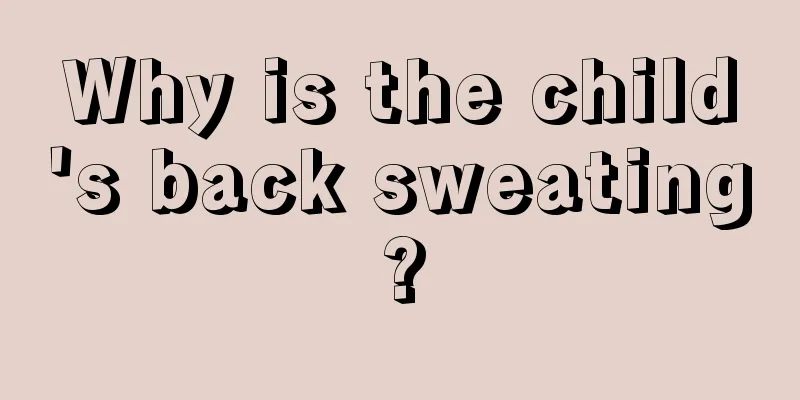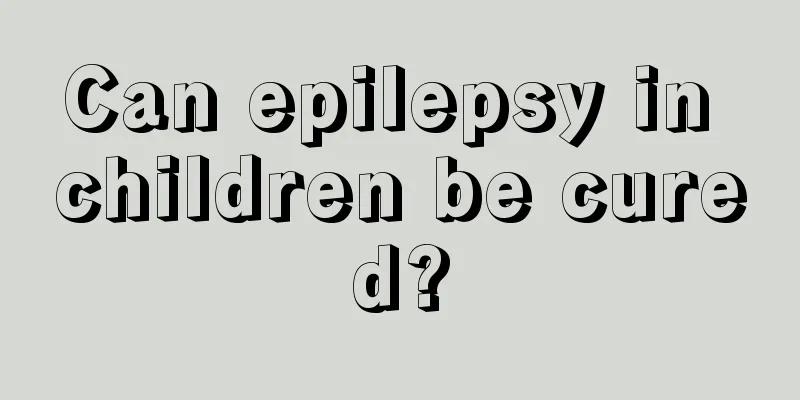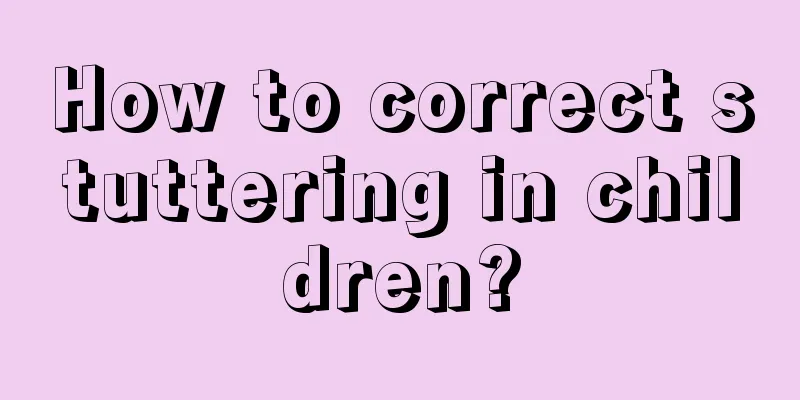Why is the child's back sweating?

|
Sweating on the back of children is a common situation. When this happens, many parents think that their children are sweating all the time because of their weak constitution. But in fact, it is not all caused by this situation. It may be caused by physiological reasons. When faced with the situation of children sweating on their backs, parents need to pay special attention to understanding the cause and take timely measures to deal with it. The following is a detailed introduction to what is going on. It is common for babies to sweat during sleep, and it is not always a symptom of weakness or illness. Many parents believe that their children’s constant sweating is due to their weak constitution. In fact, a considerable number of children suffer from physiological hyperhidrosis. Physiological hyperhidrosis is more common in the head and neck, often occurring within half an hour after falling asleep, and sweating stops in about an hour. Infants and young children have an active metabolism and are active and lively. Some of them cannot rest even after going to bed at night, so they may sweat on their heads after falling asleep. The so-called physiological hyperhidrosis refers to sweating during sleep when the child is well-developed, healthy, and has no disease. Parents are often accustomed to deciding the best environmental temperature for their children based on their own subjective feelings, and like to cover their babies with more blankets and keep them tightly covered. Because children's brain and nervous system are not yet fully developed and they are in the growth and development period, their body metabolism is very active. Coupled with the stimulation of overheating, they can only regulate normal body temperature by sweating to evaporate the heat in the body. In addition, drinking milk, malted milk or eating chocolate before going to bed can also cause sweating in children. Some parents give their children milk, malted milk, etc. before they go to sleep. After the child falls asleep, the body produces a large amount of heat, which is mainly dissipated through sweating through the skin. In addition, too high room temperature or excessive warmth can also cause children to sweat while sleeping, which are all physiological sweating. Pathological sweating occurs when the child is in a quiet state, such as sweating caused by rickets, which manifests as obvious sweating on the child's head in the first half of the night after falling asleep. Because the pillow is irritated by sweat, babies often shake their heads and rub against the pillow when they sleep, resulting in sparse hair and loss of hair on the pillow, forming typical annular hair loss on the pillow, which is medically known as "occipital baldness". It is an early manifestation of rickets in infants. As long as vitamin D and calcium are supplemented in time, rickets can be controlled and sweating will stop by itself. |
>>: Baby's body is cold and sweaty
Recommend
Can children eat Gorgon fruit?
I believe that there are many people who know abo...
What are the symptoms of chronic pharyngitis in children?
In daily life, many people feel itchy throat and ...
Treatment for a child with a heart murmur
As parents, when our children have heart murmurs,...
What to do if your two-year-old baby coughs
Every change in the baby after birth is watched b...
What are the medicines for children to help digestion?
For young babies, it is impossible to actively co...
What diseases does the chickenpox vaccine prevent?
Vaccination against chickenpox in children is par...
One and a half year old baby keeps falling down while walking
It is normal for one and a half year old babies t...
How long does it take for urticaria in children to heal?
Because urticaria, a skin disease, is related to ...
Causes of vomiting and diarrhea in babies
Parents are very concerned about their baby's...
Why do children like to sleep on their stomachs?
Many mothers like to post photos of their childre...
What medicine should be used for baby's scrotal eczema
In the process of taking care of babies, many mot...
I had inflammation when I was 14 years old
A fourteen-year-old girl is in the prime of her l...
Neonatal jaundice MRI
The main symptom of neonatal jaundice is the yell...
What are the reasons for yellow-green stools in babies?
Facing the crying baby in their arms, I believe e...
Is high crp in newborns serious?
Generally speaking, if the crp of a newborn is re...









